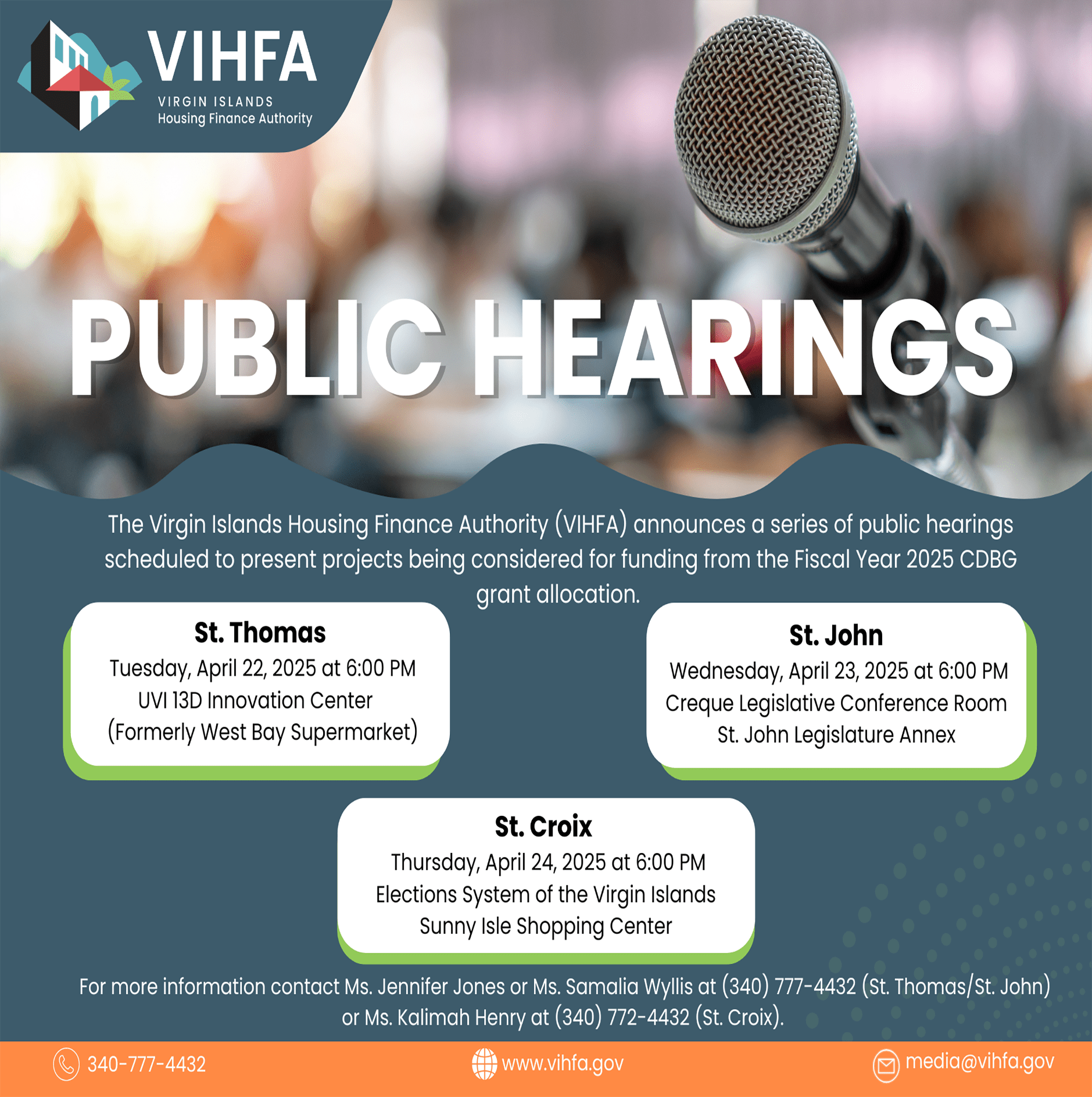While Gov. Albert Bryan Jr. says it’s too soon to talk about a recession, he stressed in a press release Wednesday that his administration is taking steps to shield the U.S. Virgin Islands from potential economic instability as national markets continue to fluctuate.
On the national level, trade tensions, rising consumer costs, and shifting federal policies have fueled concerns about a broader economic downturn, according to the most recent national financial reports. The S&P 500 recently fell 0.3 percent amid uncertainty over federal budget negotiations and new tariffs targeting major trade partners like Canada, Mexico, and China. These factors have intensified stock market volatility, raising concerns of inflation as businesses adjust prices to offset rising costs.
Meanwhile, some economists continue to assess the long-term impact of President Donald Trump’s fiscal policies, which combine extended tax cuts with increased federal spending. The Congressional Budget Office recently warned that without spending reductions, these measures could drive the national debt up by an additional $4 trillion over the next decade.
Asked by the Source Thursday whether his administration was preparing for a possible recession, Bryan said, “It’s too early for recession talk. You need two consecutive quarters of downturn.” However, he acknowledged that a slowing mainland economy could offer a silver lining for the territory, including lower prices and a potential return of Virgin Islanders seeking employment. “We have jobs,” he said.
The administration has ruled out borrowing more or seeking additional or expanded lines of credit for now. Instead, Bryan has pointed to the billions in federal disaster recovery funds still fueling local infrastructure projects, calling them a key factor in making the USVI more recession-proof than many mainland jurisdictions. Since hurricanes Irma and Maria, the territory has received approximately $2.41 billion in FEMA allocations and an additional $1.02 billion from HUD’s Community Development Block Grant Program.
Tourism, which plays a vital role in the USVI economy, could be affected by a national downturn, but Bryan believes the territory’s mid-luxury and luxury market positioning offers some insulation. “Our traveler is a little better off as we are mid-luxury/luxury in the market,” he said. Additionally, a slowdown in tourism could shift short-term rentals back into the long-term housing market, helping alleviate pressure on local residents.
In his release, Bryan said behind the scenes, his administration is assessing potential vulnerabilities and trends that could impact the territory’s economy. Tourism Commissioner Joseph Boschulte has been tasked with analyzing travel trends and shifts in visitor spending, while the Office of Management and Budget is conducting a full review of government expenditures to ensure financial stability, according to the release.
In addition to developing a tourism strategy, the governor’s financial team is assessing the upcoming fiscal year’s budget to determine where “prudent” adjustments may be necessary to maintain stability. The review comes as the territory grapples with its own cash crunch, with a deficit exceeding $180 million, according to recent testimony from the governor’s financial team.
At the same time, Bryan said in his release that he’s pushing to accelerate key infrastructure projects, including major construction initiatives and discussions on reopening the refinery. His administration views these efforts as critical to stimulating job growth and diversifying the economy beyond tourism.
Contacted by the Source Thursday, Anthony Weeks, president and CEO of the St. Croix Economic Development Initiative, said that government policy plays a critical role in economic stability, warning that investor sentiment often drives market reactions.
“Public policy is directly correlated to how the capital markets respond to news and events,” he noted. “Investors hedge their positions based on what the Fed does, what the Treasury does, and what the president does.” Weeks also pointed to the potential impact of tariffs, which he called a direct tax on consumers. “A tariff is a tax, and we’re the ones paying for it,” he said. “If companies have to increase their prices to offset higher costs, consumers pull back, household expenses go up, and discretionary spending shrinks.”
Weeks also warned that the territory often feels the effects of national economic policy six months after the mainland. “We’re always in crisis mode here,” he said. “There’s rarely a proactive approach. At least this time, there’s an effort to get ahead of the problem instead of waiting until it’s too late.”
Bryan, for his part, said he is focused on positioning the territory to weather any economic headwinds — not taking on new debt, closely monitoring market conditions, and working with private-sector partners to sustain local economic activity. “We are about as well positioned for a recession as any locale can be,” Bryan said to the Source Thursday.
A recession is defined as a significant decline in economic activity that lasts more than a few months, typically reflected in gross domestic product, employment, and industrial output. It is officially recognized after two consecutive quarters of negative GDP growth. Stock market volatility, on the other hand, refers to the frequency and size of price swings in financial markets — often a reaction to investor uncertainty or economic instability.
During the 2008 recession, U.S. territories experienced severe economic strain. In Puerto Rico, the situation worsened as the federal government phased out Section 936 tax incentives, which had long attracted manufacturers to the island. Without these benefits, companies pulled out, leading to sharp declines in manufacturing and private-sector investment. The Puerto Rican government tried to offset the losses through public spending and debt restructuring, but these measures were not enough to prevent a prolonged economic downturn.
At the same time, the USVI, under former Gov. John deJongh Jr., took a different approach, focusing on infrastructure investment and fiscal responsibility. DeJongh’s administration issued $400 million in bonds to finance capital projects that were meant to keep public services running, create jobs, and sustain economic activity. In his 2009 State of the Territory Address, deJongh acknowledged that the USVI was already in a recession but stressed the importance of cost-cutting measures, securing federal funding, and reducing government expenses to help the territory ride out the downturn.














